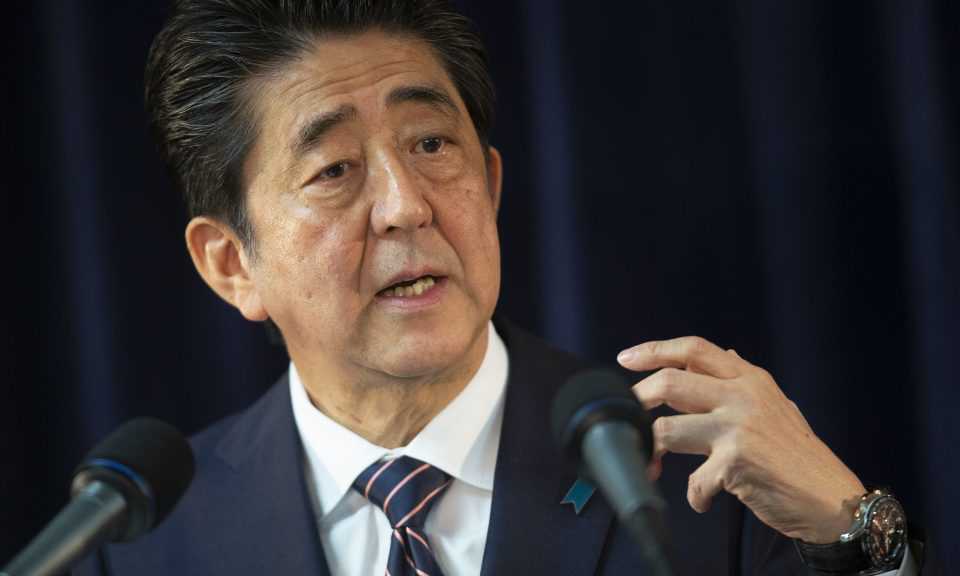Japan-EU trade deal not gold standard, but still worth billions
17 July, 2018

The European Union had dusted itself off from Donald Trump’s disastrous Brussels drive-by and is regrouping in Japan. Only days after the US president told CBS News that “I think the European Union is a foe, what they do to us in trade,” the EU is in Tokyo signing its largest-ever free-trade agreement.
The EU’s pact with Asia’s No. 2 economy on Tuesday removes a critical mass of tariffs to boost economic growth and job creation; those levies cost European and Japanese businesses nearly $1.17 billion per year.
The political symbolism of Tuesday’s signing ceremony is even more momentous than the economics. The contrast with America’s protectionist U-turn under Trump couldn’t be starker. As EU President Donald Tusk worries a US-China trade war could lead to “hot conflicts,” his 28-nation bloc and Japan are engaged in cool economic calculation.
Politics, economics and trade
In creating what’s arguably the world’s biggest open economic area, Brussels and Tokyo are filling a void left by the Trump presidency.
Trump’s withdrawal from the Trans-Pacific Partnership was a major blow to Shinzo Abe. Japan’s prime minister spent vast political capital joining the 12-nation TPP. Getting his Liberal Democratic Party, a reflexively protectionist entity, on board was no small feat. Then, Trump pulled the tatami mat out from under a world leader who’s done more than any other to normalize his administration. The EU deal is a face-saving boost for Abe’s reform hopes.
Abe also gets Japanese firms back onto a more equal footing in Europe with their rivals from South Korea, who have had the benefit of a free-trade deal with the EU since 2015. And along with working to preserve an 11-member “TPP lite” enterprise, Abe is working with Korea’s Moon Jae-in and China’s Xi Jinping on better trilateral trade flows.
The EU saved face, too, amid its Brexit mess – and Trump’s clumsy insertion into that controversy. When Trump labeled the EU an enemy, he plunged a rhetorical dagger into UK leader Theresa May’s back. While slamming her for not making a “hard” break with the EU, Trump gave a shout out to rival Boris Johnson, saying he’d be a “great prime minister.”
On Monday, the EU’s Tusk was a study in understatement when he said: “The architecture of the world is changing before our very eyes and it is our common responsibility to make it change for the better.”
Nuts and bolts
That change now has the EU and Japan creating a trading zone involving some 600 million people and a third of global gross domestic product. The EU estimates that 600,000 European jobs are directly reliant on Japanese trade. Expect greater access to Japanese infrastructure projects such as railroads, increased chemical sales and a huge boost to agriculture exports.
Tariffs on wine, cheese, pork, poultry and other products will – in theory at least – be eliminated. Levies on Japanese cars, now 10%, will gradually fall toward zero. “Japan is pressing on the accelerator of globalization,” Marcus Schürmann, director of the German Chamber of Commerce in Japan, told broadcaster Deutsche Welle.
It’s not quite the gold standard of trade deals; silver perhaps. That’s because of the gradual phase-in of certain tariff reductions and disagreements on sectors ranging from logging to whaling. Some tariffs will take 10 years – pasta and chocolate, for example – and some will take 15 years – hard cheese, beef – to fully kick in.
Not everyone is happy, of course. Trump has not passed judgement yet, and Greenpeace calls the deal a “huge transfer of power from people to big business.”
It’s important to remain sober about what the EU pact means for Japan’s deflationary fight. This is undoubtedly a plus for the third “arrow” of Abenomics – the one that has remained largely in the quiver. Abenomics is based on a samurai metaphor: while one arrow fired at a target might fail, three in unison get the job done. Abe’s first arrow – monetary easing – was fully deployed. The fiscal loosening shot is also well underway.
But a deregulatory big bang, the third and most important arrow, now takes flight, thanks to Europe. Two caveats, though. One: lower trade barriers are disinflationary in nature and may complicate the Bank of Japan’s reflation efforts. Two: lowering trade defenses don’t address Japan’s real headwinds.
Abenomics is not out of the woods yet
Japan, for all the gushing articles one reads in the international media, still isn’t serious about importing foreign talent. A cultural preference for homogeneity supersedes a shrinking and aging workforce. That raises questions about how Tokyo can ever repay the world’s largest debt burden.
Nor do lower tariffs make Japan Inc more productive or more open to foreign acquisition attempts. They don’t empower the nation’s underutilized female masses, internationalize education or cut bureaucracy. They don’t get Japan any closer to the startup boom needed to create economic energy from the ground up. They don’t make Japan any less reliant on exports, a grave vulnerability with global trade under attack.
But credit where it’s due: Abe and EU officials are doing globalization a solid favor. It’s comforting to see that there are still some adults in the halls of leadership.
In Japan’s case, this doesn’t in and of itself reinvigorate Abenomics. Yet the EU deal is a nice thing to have in a hand in a world being trumped by Washington’s inward turn.
